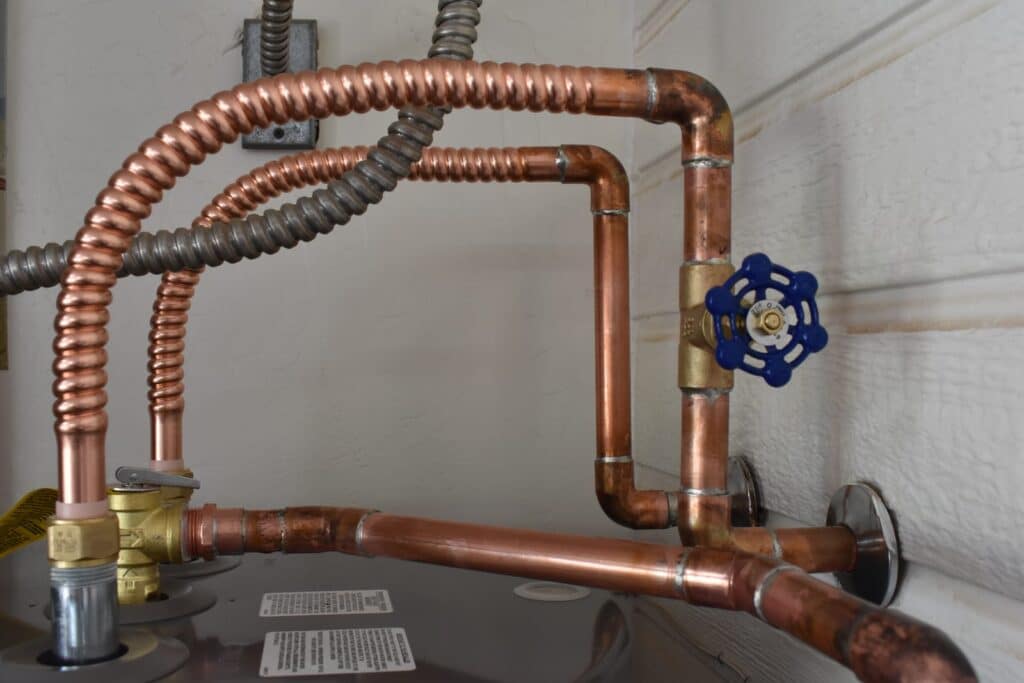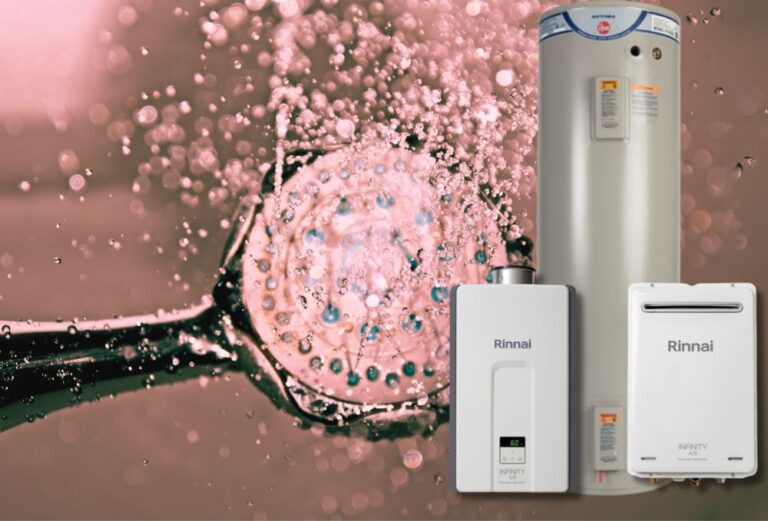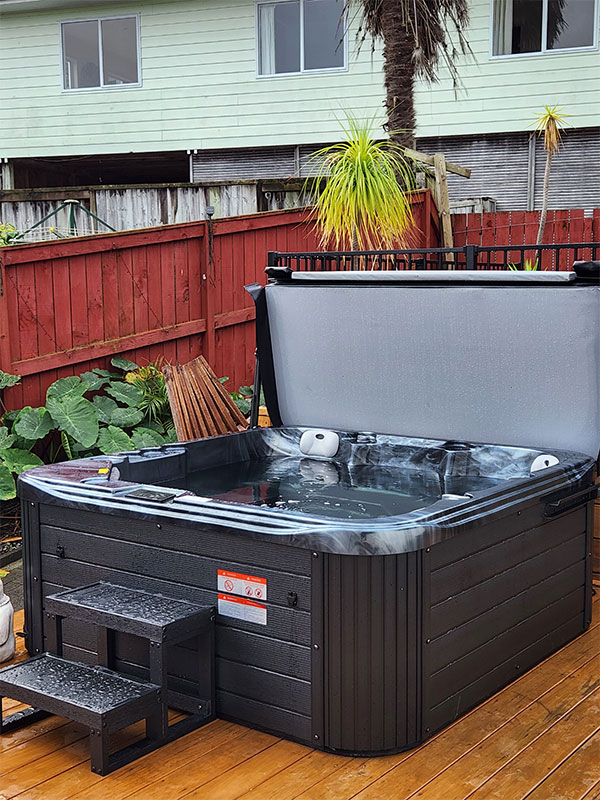Gas hot water systems are a popular choice for many Whanganui homes for their efficiency and ability to provide hot water on demand. However, their operation comes with responsibilities. Neglecting basic safety measures can lead to issues ranging from inefficient performance to serious hazards like gas leaks or carbon monoxide exposure.
Operating a gas hot water system safely isn’t complicated, but it does require attention to detail. Understanding how these systems work, recognising potential risks, and following simple safety practices can help you keep your system running efficiently and safely.
Why Safety Matters for Gas Hot Water Systems
Gas is an efficient and economical energy source, but it must be handled with care. Poor maintenance, improper installation, or neglect can lead to problems such as:
- Gas Leaks: A damaged or faulty system can release gas into your home, creating a potential fire hazard.
- Carbon Monoxide Poisoning: Faulty combustion or poor ventilation can release this invisible, odourless gas. They can often be deadly.
- Reduced Efficiency: An underperforming system works harder to produce hot water, driving up your energy bills.
By taking the right precautions and knowing how to tackle the problems, you can avoid these issues and keep your system performing reliably and safely.
Key Safety Tips for Gas Hot Water Systems
1. Schedule Regular Maintenance
Routine checks are necessary for identifying potential issues before they escalate. A licensed plumber can:
- Inspect for gas leaks or damage to pipes.
- Check the burner for proper combustion and efficiency.
- Test the flue for blockages to ensure proper ventilation.
- Assess the system’s overall performance.
Regular annual maintenance not only ensures safety but also prolongs the life of your hot water system.
2. Keep the Area Around the System Clear
Gas hot water systems need adequate ventilation to function safely. To ensure this:
- Keep the space around the system free from clutter or flammable materials.
- Regularly inspect the flue for debris, such as leaves or nests.
- Avoid enclosing the system in small or poorly ventilated areas.
- Good airflow is essential for the safe operation of gas appliances.
3. Know the Signs of a Gas Leak
Natural gas is treated with a chemical that gives it a distinctive “rotten egg” smell. If you notice this odour:
- Shut off the gas supply immediately at the main valve.
- Ventilate the area by opening windows and doors.
- Avoid using electrical switches, flames, or anything that could ignite the gas.
- Call a licensed plumber or gas fitter immediately.
Quick action can prevent a dangerous situation from escalating.
4. Install Carbon Monoxide Alarms
Carbon monoxide is a by-product of gas combustion, and even small leaks can pose a serious risk. A CO alarm provides an extra layer of protection, alerting you to unsafe levels.
Install detectors near your gas appliances and in bedrooms, and test them monthly to ensure they’re working.
5. Set Safe Water Temperatures
Water that’s too hot can cause scalding, while water that’s too cold can allow harmful bacteria to grow. New Zealand guidelines recommend:
- 60°C at the cylinder to kill bacteria like Legionella.
- 50°C at the tap for safety, especially in homes with children or elderly residents.
Safe Installation is Critical

A well-installed system is the foundation of safe operation. Here’s what to keep in mind:
- Hire a Licensed Professional: Only licensed plumbers can install gas systems in New Zealand for safety and compliance with regulations.
- Choose the Right Size System: A system that’s too small will struggle to meet demand, while an oversized system wastes energy.
- Positioning Matters: Install the system on a stable surface, ensuring the flue vents gases effectively and without obstruction.
Proper installation sets the stage for long-term safety and performance.
What to Do in an Emergency
Knowing how to respond in a gas-related emergency can make all the difference.
- If You Smell Gas: Turn off the gas supply, open windows, and avoid using electrical switches or flames. Call a licensed plumber immediately.
- If Carbon Monoxide is Detected: Evacuate everyone from the home, seek fresh air, and call emergency services.
Optimising Efficiency While Staying Safe
Maintaining safety doesn’t mean sacrificing efficiency. Here are some tips to get the best performance from your hot water system:
- Insulate Pipes: Reduce heat loss by insulating exposed pipes.
- Use a Timer: Limit operation to times of high demand to save energy.
- Upgrade to a Modern System: Continuous flow systems heat water only when needed, reducing waste and improving efficiency.
These small changes can lead to big savings while keeping your system safe.
Long-Term Care for Your Gas Hot Water System
A gas hot water system is an investment, and with proper care, it can provide reliable service for years. Keep these maintenance tasks in mind:
- Annual Check-Ups: Schedule regular inspections to catch issues early.
- Monitor for Wear: Look for rust, corrosion, or other signs of wear and tear.
- Test Safety Features: Regularly test carbon monoxide alarms and pressure relief valves.
Consistency is the key to avoiding costly repairs and ensuring safety.
Safe and Efficient in Every Season
Operating a gas hot water system safely isn’t just a one-time task—it’s an ongoing responsibility. Beyond the day-to-day operation, there are seasonal factors and lifestyle adjustments that can influence the safety and performance of your system.
Winter Precautions: In colder months, condensation in the flue or pipes can cause blockages. Regular inspections before winter can help prevent this. Also, higher demand during winter means your system might work harder. Making sure it’s well-maintained is especially important.
Summer Adjustments: During summer, you might notice less demand for hot water. Use this opportunity to schedule maintenance, as plumbers are often less busy and can dedicate time to ensuring your system is ready for the year ahead.
Energy-Efficient Habits
Small changes in how you use your gas hot water system can make a big difference in its safety and efficiency:
- Shorter Showers: Reducing hot water use lessens the strain on your system.
- Cold Water for Laundry: Unless necessary, opt for cold water settings to reduce energy consumption.
- Regular Use: Systems that sit idle for long periods may experience gas or condensation build-up. If you’re going away for an extended time, consider turning off the system and following manufacturer recommendations for restarting it.
When to Get Professional Help
Even with the best care, some tasks are best left to the professionals. Any professional plumber can handle everything from detailed safety checks to emergency repairs.
Whether it’s a small fix or a full upgrade, they can help keep your system running smoothly and safely.
Safety First, Always
A gas hot water system can be a safe, reliable, and cost-effective addition to your home—but only if it’s managed properly. By following these safety tips and staying on top of regular maintenance, you can enjoy peace of mind knowing your system is running efficiently and safely.
If you’re ever unsure about your system, don’t hesitate to consult a qualified local plumber. After all, a little care and attention can go a long way in protecting your home and family.




